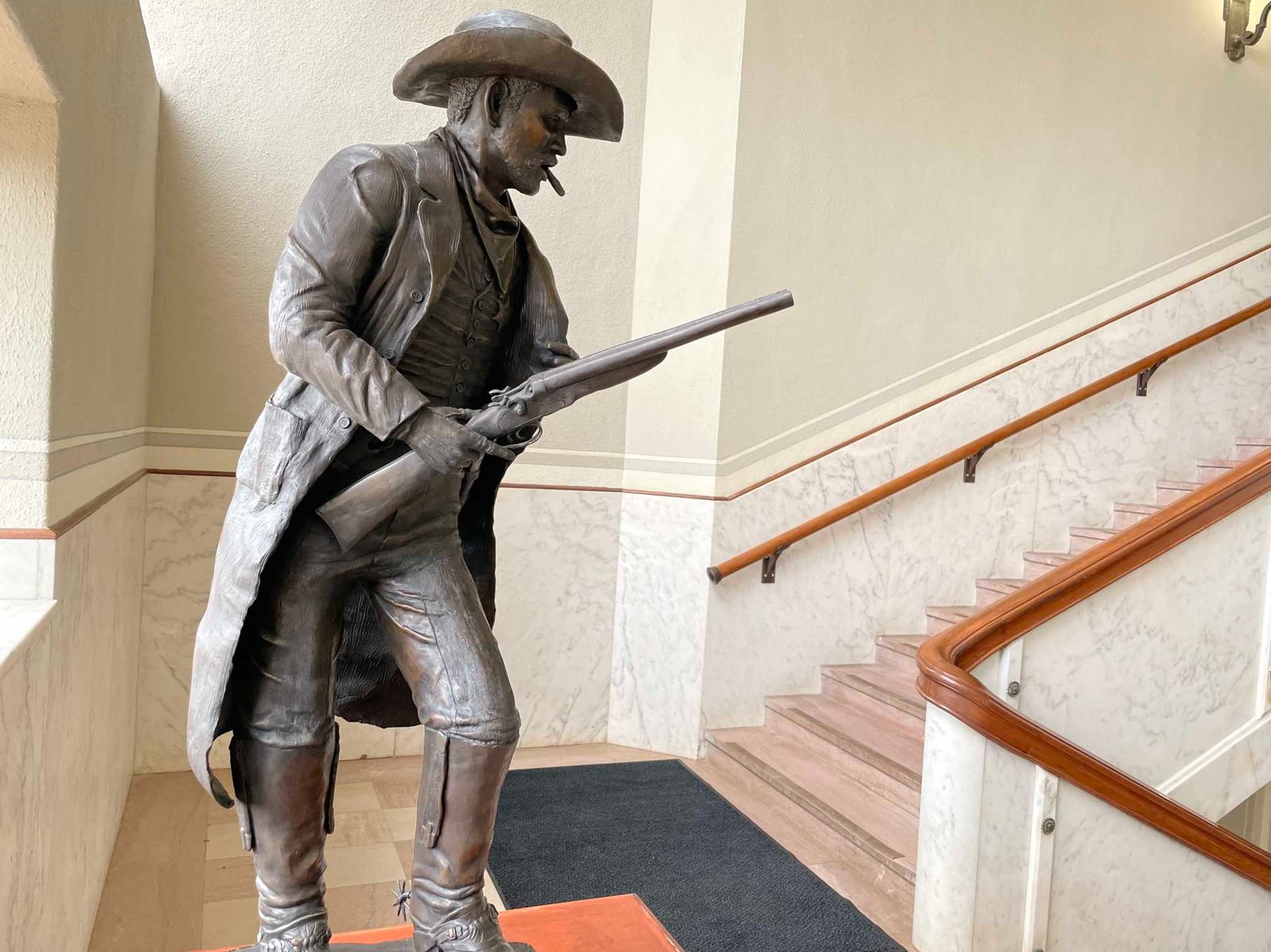Winnie Sumter: A Pioneering Woman of the American West
Winnie Jane Reeves, formerly known as Winnie Sumter, was a remarkable woman who lived during a transformative period in American history. Born around March 15, 1859, in Tahlequah, Cherokee Nation (now Oklahoma), Winnie’s life spanned the tumultuous years of the late 19th and early 20th centuries. Her story is one of resilience, adaptation, and the complex tapestry of relationships that defined the American frontier.
Early Life and Origins
Cherokee Roots
- Born in Tahlequah, the capital of the Cherokee Nation
- Exact parentage unknown, reflecting the often-fragmented records of the time
- Grew up during a period of significant change for Native American communities
The Mystery of Her Childhood
While details of Winnie’s early years remain elusive, her birthplace in Tahlequah provides important context. The Cherokee Nation, forcibly relocated to Indian Territory (present-day Oklahoma) in the 1830s, was rebuilding its society and culture. Winnie’s formative years would have been shaped by this unique blend of Cherokee traditions and the encroaching influence of white settlers.
First Marriage: Ben H. Sumner
A Young Bride
- Married Ben H. Sumner around 1878, when Winnie was approximately 19 years old
- Union took place in Kansas, suggesting possible migration or family connections there
Life on the Frontier
The late 1870s were a time of westward expansion and settlement. Winnie and Ben’s marriage likely reflected the challenges and opportunities of frontier life:
- Establishing a homestead
- Navigating the complex relationships between settlers and Native communities
- Adapting to the harsh realities of prairie life
Children of the First Marriage
Winnie and Ben Sumner had several children together:
- Rosa (Smith) Westbrooks
- Sylvestor Sumner
- Bennie Sumner
- Charlie Sumner
- Estella (Sumner) Rayford
The varied surnames of her children hint at the complex family dynamics and possible remarriages that were common in this era.
Transition and Change
End of First Marriage
- The Sumner marriage appears to have ended around 1895
- Reasons for the separation are unclear, but could include:
- Death of Ben Sumner
- Divorce, which was becoming more socially acceptable
- Abandonment, a not uncommon occurrence on the frontier
A Period of Independence
The years between 1895 and 1900 represent a pivotal time in Winnie’s life. As a single mother with multiple children, she would have faced significant challenges:
- Providing for her family
- Navigating social expectations for women
- Possibly seeking new opportunities in the rapidly changing West
Second Marriage: Bass Reeves
A Historic Union
- Married Bass Reeves on January 14, 1900, in Indian Territory
- Bass Reeves: a legendary figure in American law enforcement
Bass Reeves: The Iconic Lawman
Bass Reeves was one of the first black deputy U.S. marshals west of the Mississippi River. His life and career were marked by extraordinary achievements:
- Born into slavery in 1838
- Gained freedom after the Civil War
- Renowned for his skill as a marksman and detective
- Arrested over 3,000 felons and shot and killed 14 outlaws in self-defense
Significance of the Marriage
Winnie’s marriage to Bass Reeves is noteworthy for several reasons:
- Interracial marriages were rare and often controversial at the time
- It united two individuals with rich, complex histories tied to the American West
- The union took place in Indian Territory, a unique jurisdiction with its own laws and social norms
Life with Bass Reeves
Supporting a Lawman’s Career
As the wife of a deputy U.S. marshal, Winnie would have played a crucial role:
- Managing the household during Bass’s long absences
- Providing emotional support for a man in a dangerous profession
- Possibly assisting with administrative tasks related to his work
Blended Family Dynamics
The marriage brought together children from previous relationships:
- Winnie’s children from her marriage to Ben Sumner
- Any children Bass may have had from his previous marriage
This blended family would have navigated the complexities of:
- Racial identity in a segregated society
- The dangers associated with Bass’s profession
- The challenges of creating a unified family unit
Later Years and Legacy
Move to California
- Winnie relocated to Los Angeles, California
- This move likely occurred after Bass Reeves’ retirement in 1907
Final Days
- Passed away on April 25, 1918, at approximately 59 years old
- Died in Los Angeles, far from her Cherokee roots
Remembering Winnie Sumter
While often overshadowed by her famous husband, Winnie Sumter’s life is worthy of recognition:
- Survived and thrived during a period of immense social change
- Navigated complex racial and cultural landscapes
- Raised a family under challenging frontier conditions
- Supported one of the most significant law enforcement figures of the Old West
Historical Context: Women in the American West
Challenges Faced by Frontier Women
Women like Winnie Sumter played crucial, often unrecognized roles in the settlement of the American West:
- Maintaining homes and families in harsh conditions
- Contributing to the economic survival of households
- Navigating complex social and racial dynamics
- Adapting to rapidly changing legal and social norms
The Changing Status of Women
Winnie’s life spanned a period of significant change for women’s rights:
- 1848: Seneca Falls Convention marks the beginning of the organized women’s rights movement
- 1869: Wyoming Territory grants women the right to vote
- 1890: Wyoming enters the Union as the first state with women’s suffrage
- 1920: 19th Amendment grants women the right to vote nationwide
While it’s unclear how directly these changes affected Winnie, they formed the backdrop of her adult life.
The Legacy of Winnie Sumter
A Window into History
Winnie Sumter’s life provides valuable insights into several aspects of American history:
- The experience of Native American communities post-removal
- The settlement and development of the American West
- The complexities of race relations in the late 19th century
- The evolving role of women in frontier society
Preserving Her Story
Despite the gaps in our knowledge of Winnie’s life, her story is worth preserving:
- Represents countless women whose stories have been lost to time
- Offers a unique perspective on a transformative period in American history
- Provides context for understanding the life of Bass Reeves
Genealogical Significance
Challenges in Tracing Winnie’s Lineage
Researching Winnie Sumter’s family history presents several challenges:
- Limited records from Indian Territory
- Multiple surnames (Smith, Sumner, Foreman, Reeves)
- Potential mixed racial heritage complicating record-keeping
Importance for Descendants
For descendants of Winnie Sumter and Bass Reeves, tracing this lineage can:
- Provide a sense of connection to important historical figures
- Offer insights into the complex racial and cultural dynamics of the time
- Reveal previously unknown family connections
Winnie Sumter in Popular Culture
Representations in Media
While Winnie herself has not been prominently featured, her connection to Bass Reeves has led to indirect representations:
- Possible inspiration for characters in Western films and television shows
- Mention in biographies and historical works about Bass Reeves
Potential for Future Exploration
Winnie Sumter’s life offers rich material for creative works:
- Historical fiction novels exploring her perspective
- Documentaries on women of the American West
- Dramatic adaptations of the Bass Reeves story, including his family life
Conclusion
Winnie Jane Reeves, known variously as Winnie Sumter, Smith, Sumner, and Foreman, lived a life that encapsulated the complexities and challenges of the American West. From her birth in Cherokee territory to her marriages and eventual move to California, Winnie’s journey reflects the broader patterns of migration, cultural change, and social evolution that defined her era.
While much of her personal story remains shrouded in mystery, the facts we do know paint a picture of a resilient woman who navigated the turbulent waters of frontier life. Her marriage to the legendary Bass Reeves places her at the intersection of some of the most significant themes in American history: the evolution of law enforcement in the West, the changing dynamics of race relations, and the often-overlooked role of women in shaping the frontier.
As we continue to uncover and appreciate the diverse stories that make up our shared history, figures like Winnie Sumter remind us of the countless individuals whose lives, though not always recorded in detail, were instrumental in shaping the world we inherit. Her legacy lives on through her descendants and in the broader story of women who helped build the American West.






